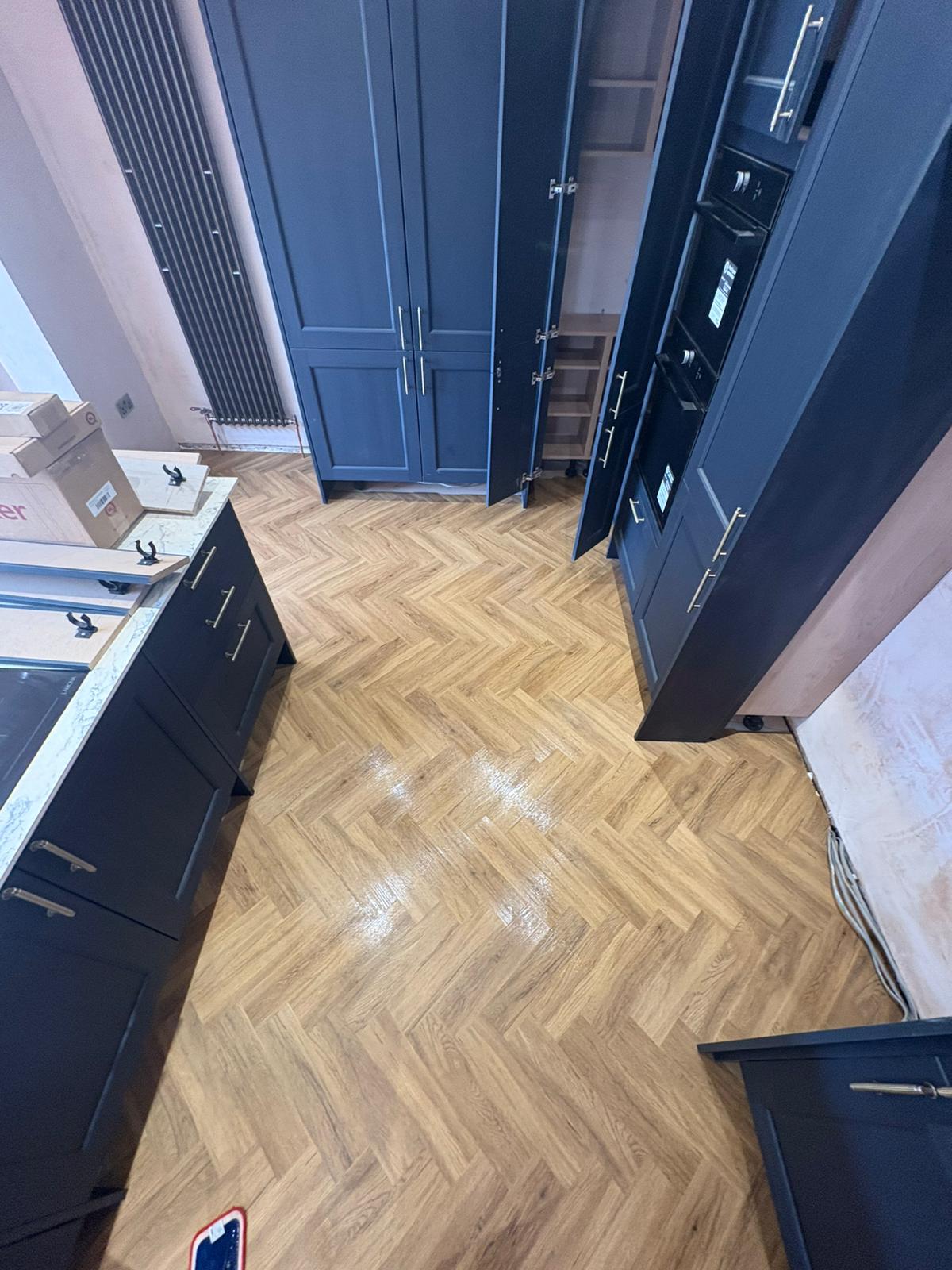Choosing the right flooring can completely transform a space, whether it’s a busy family home, a modern office, or a high-traffic retail environment. Two of the most popular and affordable options on the market are vinyl flooring and luxury vinyl tile (LVT). While they sound similar, they’re not exactly the same. At Floors2u, we supply and fit both for domestic and commercial clients, and we’re often asked: “What’s the difference between vinyl and LVT?”
In this guide, we’ll break down the key differences, explore their pros and cons, and help you decide which option best suits your needs.
What is Vinyl Flooring?
Vinyl flooring is a long-standing favourite for homes and businesses thanks to its affordability, practicality, and variety of styles. It’s usually sold in large rolls (known as sheet vinyl), which are cut to size and laid across the floor in one or two big sections.
Key features of vinyl flooring:
- Cost-effective and budget-friendly
- Quick to install, especially in larger rooms
- Easy to clean and maintain
- Water-resistant, making it ideal for kitchens and bathrooms
- Available in a wide range of colours and patterns, including wood and tile effects.
Vinyl is an excellent choice if you want a low-cost solution that still looks smart. For commercial clients, it works well in areas like canteens, classrooms, or waiting rooms where durability and simple upkeep are essential.
What is LVT Flooring?
Luxury Vinyl Tile (LVT) is a more advanced type of vinyl flooring designed to give a realistic finish and superior performance. Instead of being laid in one sheet, LVT comes in individual planks or tiles, similar to laminate or real wood flooring.
Key features of LVT flooring:
- Highly realistic wood, stone, or ceramic finishes
- Extremely durable and resistant to scratches, dents, and stains
- 100% waterproof, making it suitable for both homes and businesses
- Comfortable underfoot with improved sound insulation
- Can be laid in stylish patterns (e.g. herringbone or parquet)
For commercial use, LVT is especially popular in offices, gyms, shops, and hospitality venues where aesthetics matter just as much as performance. In domestic settings, it’s perfect for living rooms, hallways, and kitchens where you want a premium look without the premium price of real wood or stone.
Vinyl vs LVT: The Key Differences
While both are made from similar materials, the construction and finish are what set them apart:
| Feature | Vinyl Flooring | LVT Flooring |
| Appearance | Printed patterns, less realistic | Authentic wood/stone look |
| Format | Sheet rolls | Planks or tiles |
| Durability | Good | Excellent |
| Water Resistance | Water-resistant | Fully waterproof |
| Installation | Quicker, fewer seams | More time-consuming, but versatile |
| Cost | Lower upfront cost | Higher investment, longer lifespan |
Which Should You Choose?
Choose Vinyl Flooring if:
- You’re working to a budget
- You need a fast, no-fuss installation
- You want a practical option for kitchens, bathrooms, or school spaces.
Choose LVT Flooring if:
- You want a realistic wood or stone look without the price tag
- Durability is a top priority (great for heavy foot traffic)
- You’re designing a commercial space where style is important
- You’d like the flexibility to create bespoke patterns or layouts.
Domestic vs Commercial Considerations
- For Homes:
Vinyl is often used in kitchens and bathrooms for its easy cleaning and affordability, while LVT is popular in living rooms, hallways, and open-plan spaces where a stylish, hard-wearing finish is desired.
- For Businesses:
LVT is often the first choice for modern commercial interiors because it combines durability with a premium look. Vinyl, however, is still widely used in schools, care facilities, and healthcare environments where hygiene, safety, and cost-efficiency matter most.
Why Choose Floors2u for Your Vinyl or LVT Flooring?
At Floors2u, we’ve been supplying and fitting flooring for over 40 years, working on everything from family homes to large-scale commercial projects. Our team of specialists can guide you through the best options for your space, provide samples, and ensure a flawless installation.
Whether you’re after the budget-friendly practicality of vinyl or the high-end finish of LVT, we’ll make sure your new floor is fitted to last.
Final Thoughts
Vinyl and LVT flooring both offer excellent value, but the right choice depends on your budget, style preferences, and how much traffic your space will see. If you want simple and affordable, vinyl is the way to go. If you want something more stylish and durable, LVT is worth the investment.
Ready to upgrade your flooring? Contact Floors2u today for expert advice, free quotes, and professional installation services across both domestic and commercial projects.



